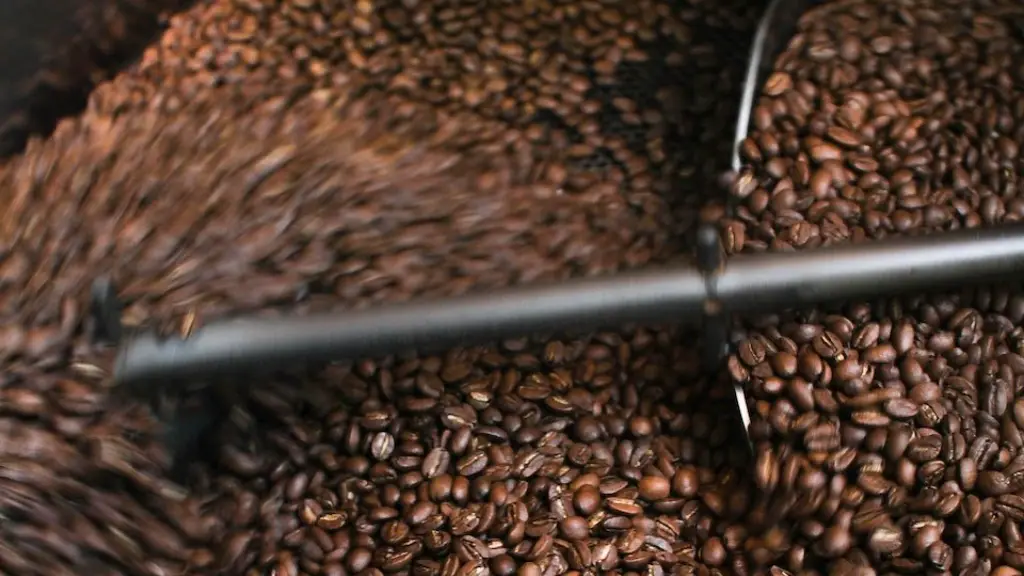Coffee is one of the world’s most widely consumed beverages, but is it safe to drink during pregnancy? Many studies have suggested a link between coffee consumption and an increased risk of miscarriage. While some research has shown an association between coffee drinking and miscarriage, there is still a lot of debate and uncertainty on the topic.
Women who become pregnant could be at an increased risk of miscarrying if they consume large amounts of coffee, due to the caffeine content. Caffeine is known to cross the placenta, and can have an effect on the growing fetus.
A study from the National Institute of Health (NIH) in the United States found that women who drank more than 200 mg of caffeine per day during pregnancy had a 56% higher risk of miscarriage. This amount of caffeine is equivalent to about two cups of coffee.
The American College of Obstetricians and Gynecologists (ACOG) advises pregnant women to limit their caffeine intake to less than 200 mg a day. However, it is important to note that this advice is not based on a review of scientific studies.
While the evidence of a direct link between drinking coffee and miscarriage is still inconclusive, research suggests that reducing caffeine intake is associated with a decreased risk of miscarriage. However, it is important to note that other factors may play a role in miscarriage, such as smoking, alcohol consumption, and age.
Experts agree that the effects of caffeine on a developing fetus are complex and not fully understood. Many studies have focused on the risks associated with large amounts of caffeine, but little research has been done on small amounts of caffeine, such as one or two cups of coffee per day.
Given the uncertainty about the potential risks, it is best for pregnant women to limit their caffeine intake to less than 200 mg per day. This can be achieved by switching to decaffeinated coffee, limiting coffee consumption to one cup per day, and avoiding energy drinks and other highly caffeinated beverages. It is also important for pregnant women to follow a healthy and balanced diet and get regular exercise.
Nutritional deficiency and caffeine consumption
In addition to caffeine, deficiencies in certain minerals and nutrients may also contribute to an increased risk of miscarriage. A study published in JAMA Neurology found that women who were deficient in vitamins B6, B12, and folate were more likely to experience a miscarriage. These vitamins play an important role in fetal development, and women who are not consuming enough of them may be more likely to experience a miscarriage.
In addition to monitoring nutrition, pregnant women should also limit their intake of caffeine. Some studies have found an association between caffeine consumption and an increased risk of miscarriage. It is best to limit caffeine intake to less than 200 mg per day, or one cup of coffee per day, to reduce risk.
Why consider reducing caffeine consumption?
While many studies have suggested that consuming large amounts of caffeine can increase the risk of miscarriage, other studies have found no significant link between caffeine consumption and miscarriage risk. However, the uncertainty surrounding caffeine and its potential effects on pregnancy makes it important to consider reducing caffeine intake.
In addition to reducing the risk of miscarriage, reducing caffeine intake during pregnancy may also help reduce the risk of other complications, such as preterm labor or low birth weight. Although more research is needed to fully understand the effects of caffeine on the developing fetus, reducing caffeine intake may be a beneficial precaution for pregnant women.
Benefits of low-caffeine or caffeine free drinks
Pregnant women who do not want to cut out coffee entirely may still benefit from switching to a low-caffeine or caffeine free variety. Decaffeinated coffee contains small amounts of caffeine, which may be less likely to have an effect on the growing fetus. The amount of caffeine in a cup of decaffeinated coffee is usually around 10 mg, compared to roughly 95 mg in a cup of regular coffee.
In addition to decaffeinated coffee, there are also many caffeine-free options available, such as herbal teas, which may be a better choice for pregnant women than caffeinated drinks. Many of these beverages also provide additional benefits, such as vitamins and antioxidants, which may help to support a healthy pregnancy.
Caffeine and food sources
Caffeine is not only found in coffee, but is also present in a range of foods and beverages, including tea, energy drinks, sodas, and chocolate. It is important to be mindful of other sources of caffeine when trying to limit caffeine intake during pregnancy. Pregnant women should pay close attention to labels to check the caffeine content of foods and beverages, and avoid those with higher levels of caffeine.
In addition to avoiding caffeinated beverages, pregnant women should also limit their intake of sugar-sweetened beverages, such as sodas and energy drinks. These drinks are high in sugar and have been linked to an increased risk of complications during pregnancy.
Caffeine alternatives
If pregnant women do not want to cut out coffee, there are a number of alternatives they can try that are low in caffeine, such as herbal teas or decaffeinated coffee. Many of these drinks offer additional benefits, such as vitamins and antioxidants, which may be beneficial for pregnant women. It is also important to pay attention to other sources of caffeine, such as chocolate and energy drinks, and limit intake of these.
Although the effects of caffeine on pregnancy are not fully understood, there is a consensus among experts that reducing caffeine intake during pregnancy may be beneficial. Pregnant women should aim to limit their intake of caffeine to less than 200 mg per day, and avoid highly caffeinated beverages, such as energy drinks and sodas.
Effects of caffeine on the developing fetus
Caffeine is known to cross the placenta, and can have an effect on the developing fetus. A study from the National Institute of Health (NIH) in the United States found that women who drank more than 200 mg of caffeine per day during pregnancy had a 56% higher risk of miscarriage. However, it should be noted that other factors, such as smoking and alcohol consumption, may also be involved.
Research has also suggested that caffeine may affect fetal development by reducing the growth of the placenta, and can lead to lower birth weight babies. There is also some evidence that high caffeine consumption during pregnancy may be linked to a higher risk of stillbirth.
In addition to the potential direct effects of caffeine on the developing fetus, studies have also suggested an association between caffeine consumption and other complications, such as preterm labor and low birth weight. Therefore, it is important for pregnant women to pay close attention to their caffeine intake and limit it to less than 200 mg per day.
Conclusion
Although there is still some uncertainty surrounding the effects of caffeine on pregnancy, research suggests that reducing caffeine intake is associated with a decreased risk of miscarriage. Pregnant women should limit their intake of caffeine to less than 200mg per day, and avoid highly caffeinated beverages, such as energy drinks and sodas. Alternative low-caffeine drinks, such as decaffeinated coffees and herbal teas, may also provide additional benefits for pregnant women.





